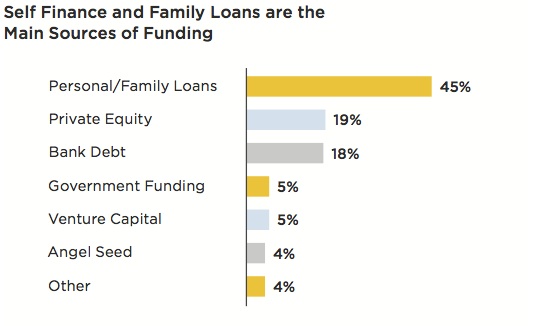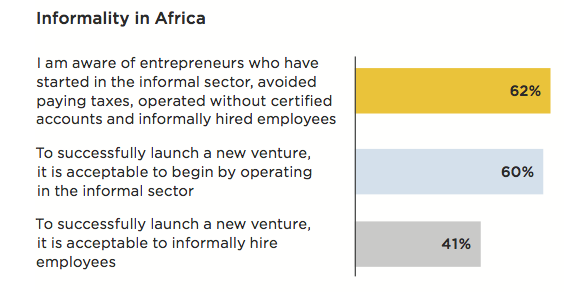A couple months back Omidyar Network released a report (with an exhaustively long title, like all reports tend to have), “Accelerating Entrepreneurship in Africa: Understanding Africa’s Challenges to Creating Opportunity-driven Entrepreneurship.“. If you’re interested in this space at all, in even a minor way, it’s well worth a read.
Get the full 2.5Mb download of the report here: (ON Africa Report).
The gaps they see are familiar to many. We all know that part of the problem is the education system isn’t setup for problem solving, it’s about rote learning.
“Students are not afforded clear paths for cultivating competencies related to practical thinking and creative problem-solving—skills needed to successfully build and manage a business.”
African entrepreneurs aren’t helped by government policies and regulations, in fact they’re better served by doing it informally first, as seen in the responses on this to the question:
Another great quote about the cultural pressure not to do a startup:
“Parents and guardians pressure their wards into studying more professional courses rather than entrepreneurial or creative ones, sometimes even tagging them as ‘crazy’ when students make the decision to work in start-up companies or develop their own businesses.”
There’s also a gap in where companies find seed funding:

The survey focused on four areas of the entrepreneurial environment:
- Entrepreneurship assets: Financing, skills and talent, and infrastructure
- Business support: Government programs and incubation.
- Policy accelerators: Legislation and administrative burdens.
- Motivations and mindset: Legitimacy, attitudes, and culture.
There are a lot of recommendations for each of these four areas that the report covers, enough for anyone running a tech hub, incubator, university and especially the government to think through.
